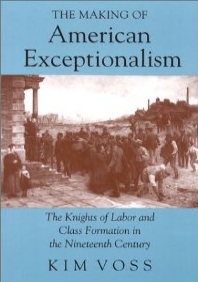
Why has the labor movement in the United States been so weak and politically conservative in comparison to movements in Western Europe? Kim Voss rejects traditional interpretations--theories of "American exceptionalism"--which attribute this distinctiveness to inherent characteristics of American society. On the contrary, she demonstrates, the American labor movement had much in common with its English and French counterparts for most of the nineteenth century. Only with the collapse of the Knights of Labor, the largest American labor organization of the century, did the U.S. movement take a different path.